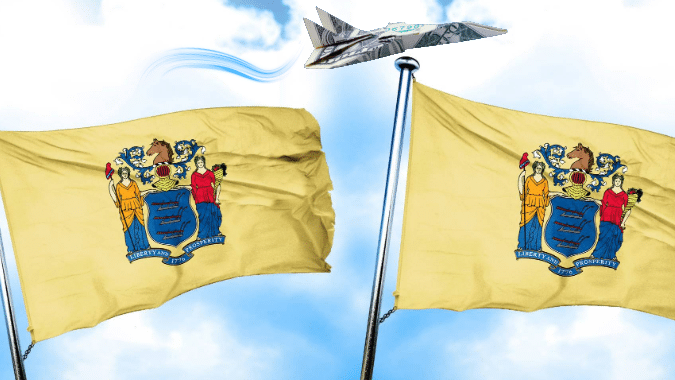Businesses, and anyone concerned about the potential of tax hikes, more debt and spending cuts, have been anxiously waiting for more details about how devastating the impact of the COVID-19 crisis has been on state revenues. Information on that fiscal devastation started to surface this week.
After a strong first nine months of FY20, where total major state revenues had been up 6.2%, the just-released April revenue collection was the first one to really start showing the COVID-19 fiscal impact. In just one month, the positive 6.2% growth that was above budget projections flipped to negative 8.1% and well below the budgeted 3.8% growth.
In fact, revenues for the month of April of 2020 saw a 59.7% decline from April of 2019, but that sounds a lot scarier than it really is. The usual April 15 annual collection date for income taxes and corporate business taxes was shifted three months later to July 15 to help give some extra cash to taxpayers through the pandemic’s lockdown, so of course the April revenue numbers were going to be historically low. COVID-19’s impact on the economy certainly had something to do with that revenue decline, but there is a significant self-imposed revenue decline as well. Over 90% of the April-to-April gap comes from the artificially low-income tax and CBT revenues. Revenues will probably make up a good portion of this shortfall with a historically but artificially strong July, which will show the income tax and CBT revenues that were shifted from April.
The sales tax is probably a better indicator of the COVID-19 influence on the economy and revenues, and it is down 13.7% from last April’s collection. Sales tax does have a lag, so that really is March’s sales tax performance. A decline of almost 14% where half of that month had an open economy before the pandemic shutdown in the back half of March is still frightening.
Treasury also supplied us with some details on its preliminary revenue projections for FY20 and FY21 through a release of a new voluntary bondholder disclosure statement. It is expecting FY20 revenues to be $2.8 billion (7%) below what was budgeted. That deficit will be a challenge to cover, but Treasury’s freezing of a billion dollars plus the rainy-day fund plus the budget surplus could begin to cover that FY20 shortfall.
FY21 will be another matter and potentially more painful to overcome. Treasury is estimates revenues will be $7.3 billion (18%) less than the expectation at the Governor’s budget message. The good thing, unlike in FY20, is that spending and revenues do not have to remain the same as the Governor’s budget message, and in some ways, the FY21 proposal can be a reset. A deficit in a proposed fiscal year is easier to tackle in some ways, but the magnitude of the FY21 revenue decline will be daunting. It is also interesting that Treasury did not include in this projected revenue hole the tax increases that Governor Murphy called for in his FY21 budget proposal.
Handling this projected $10 billion revenue drop over two fiscal years will require the use of several policy tools. Hopefully federal assistance is larger than anyone expects and can cover a large portion of this $10 billion, but it is reasonable to expect some tough discussions of spending cuts, tax increases and/or borrowing. It also will be interesting to see what effect the change in length of the two fiscal years has on this upcoming debate with FY20 now being 15 months long and FY21 only being nine months.
No one knows exactly what to expect in this unprecedented public health and economic crisis, but it was good this week to start to see some numbers emerge that can be analyzed. The Murphy Administration is expected to issue further information in a detailed budget report to the Legislature required by May 22 under the recently enacted law that extended tax filing deadlines and adjusted the two fiscal years.


